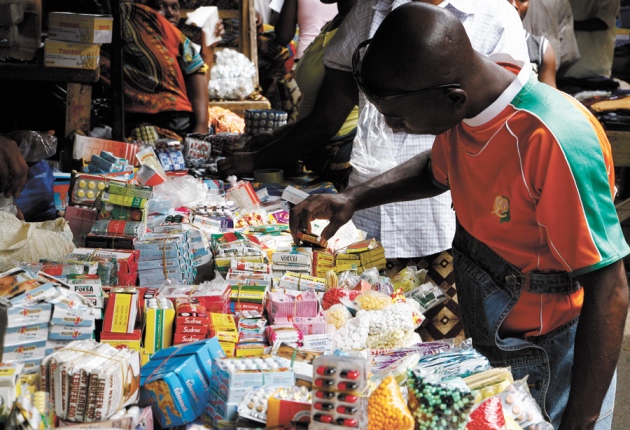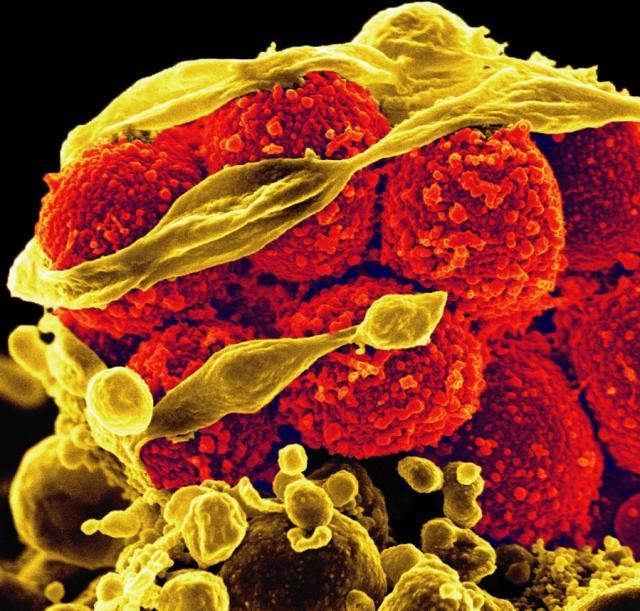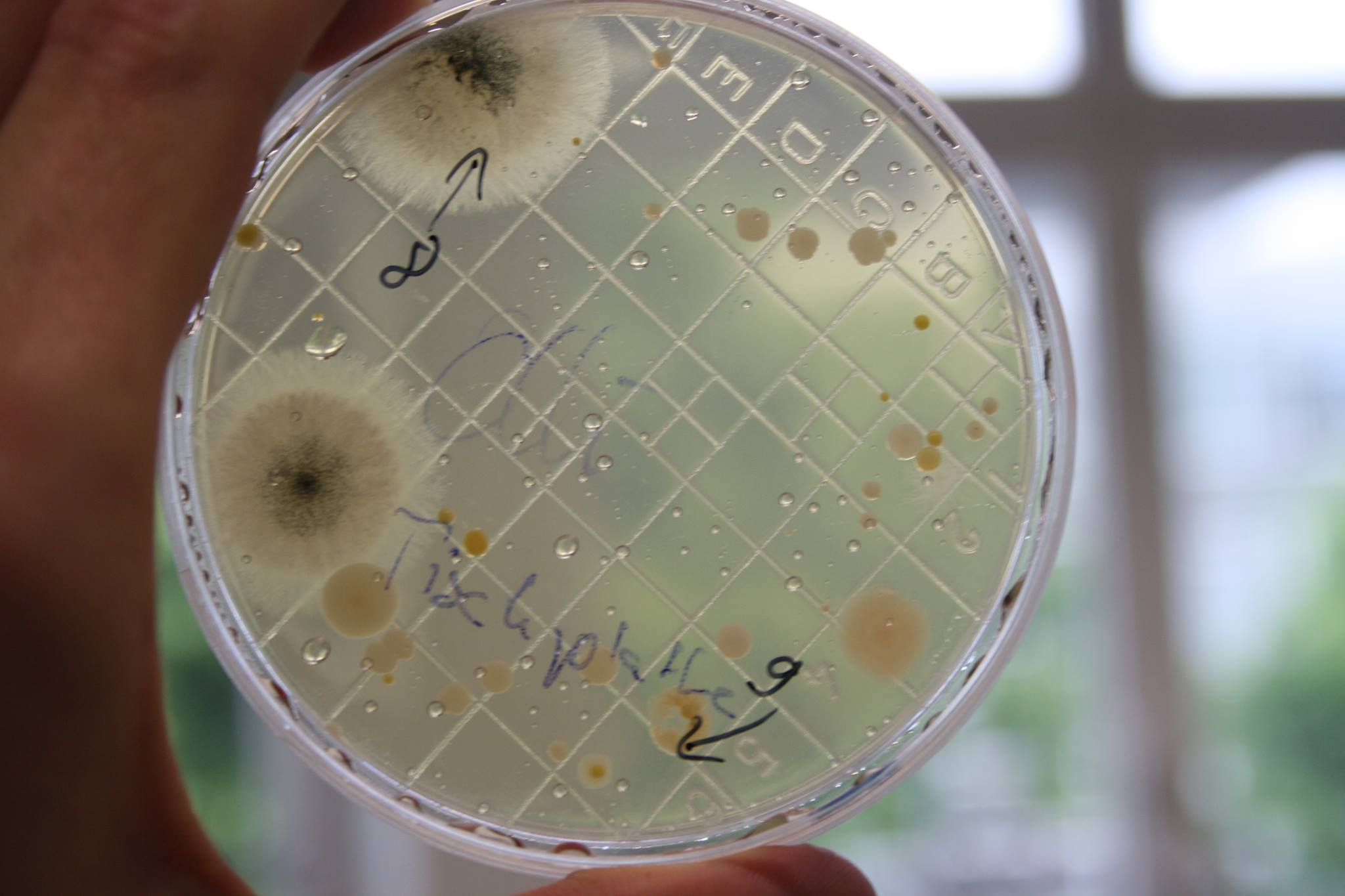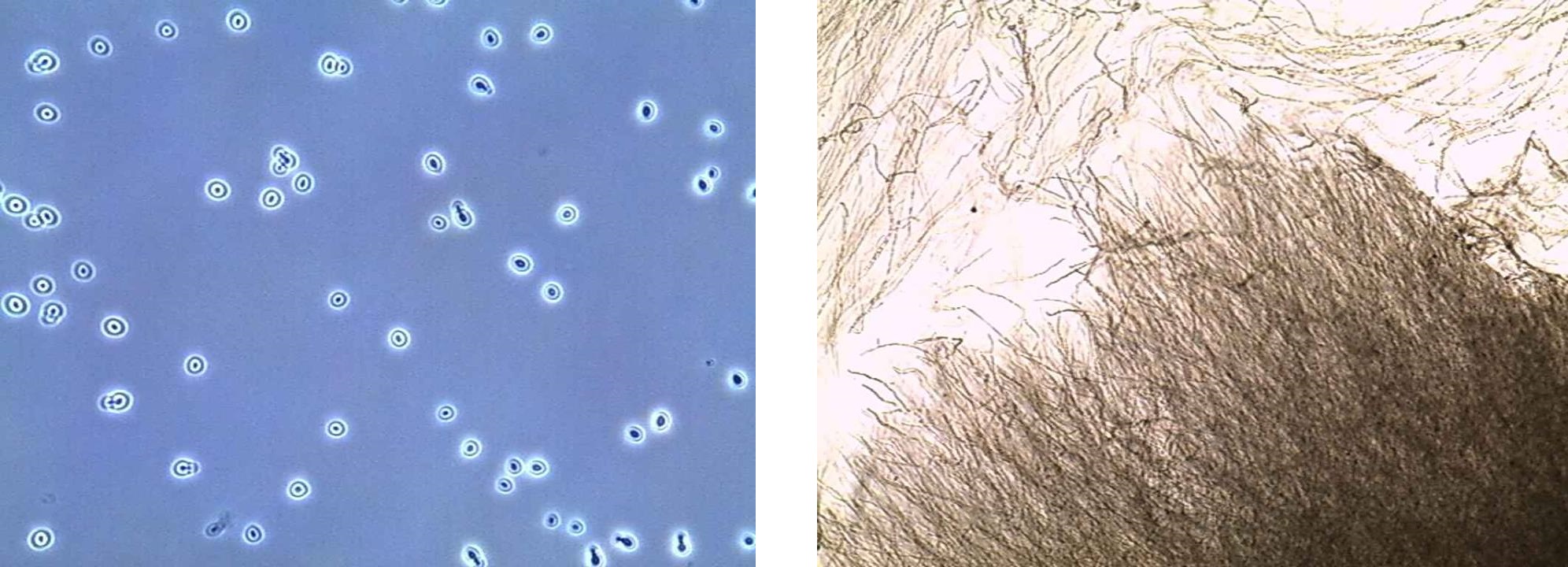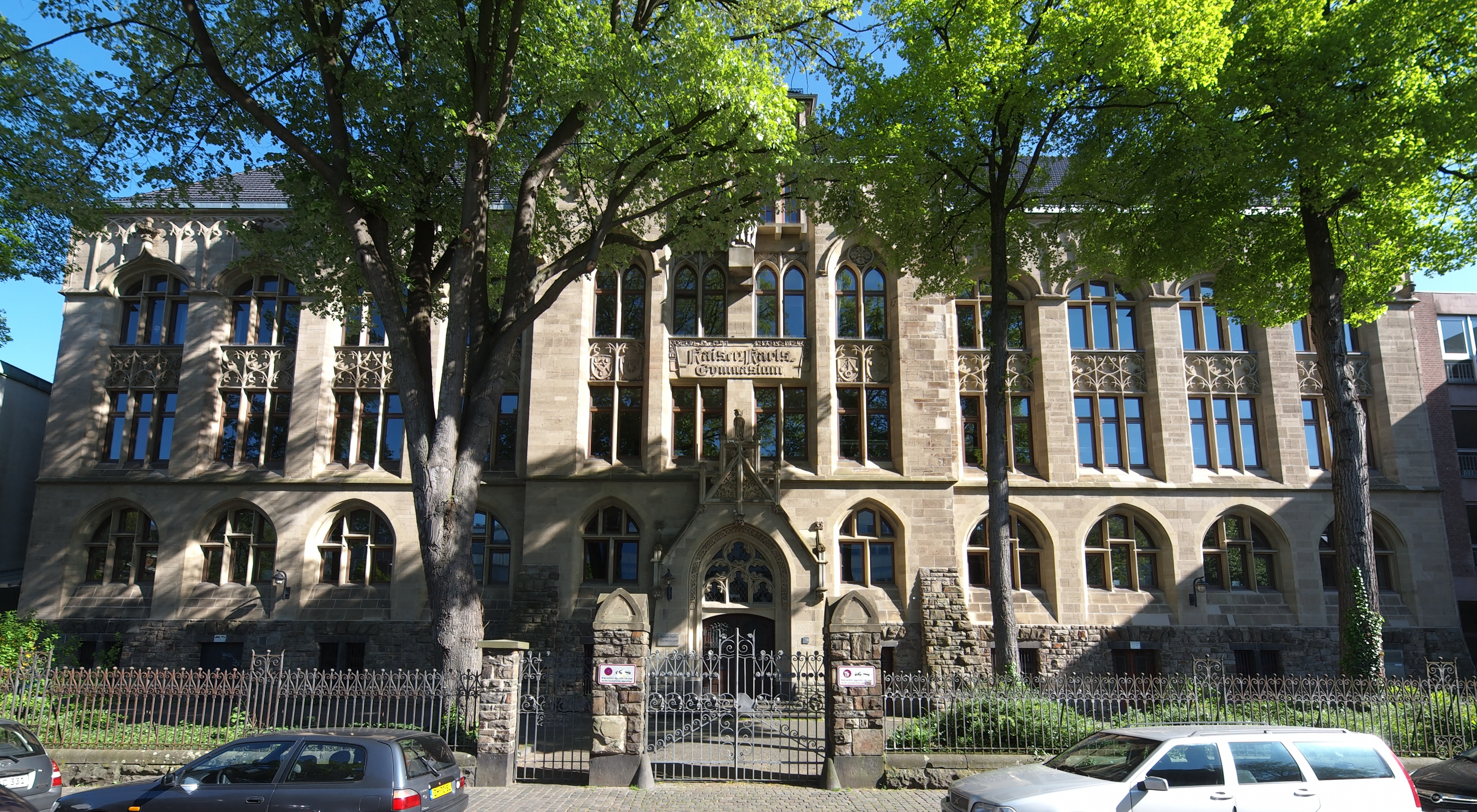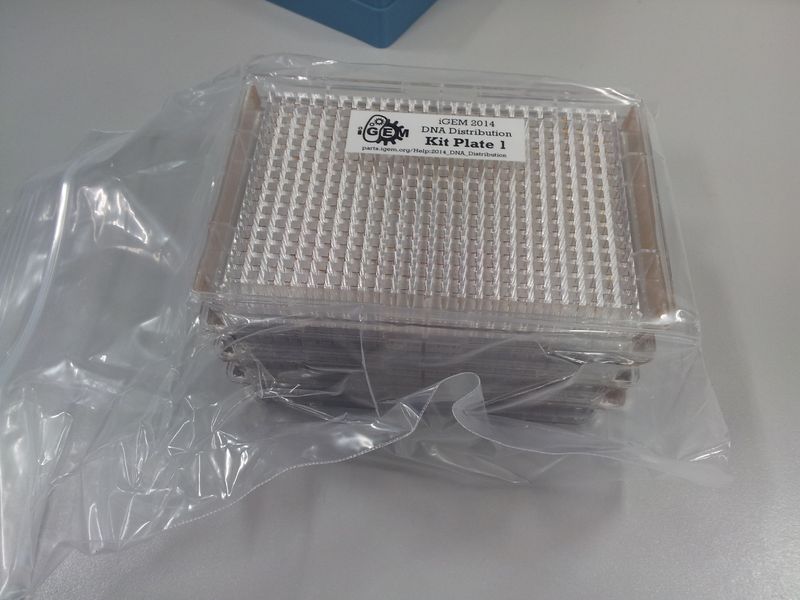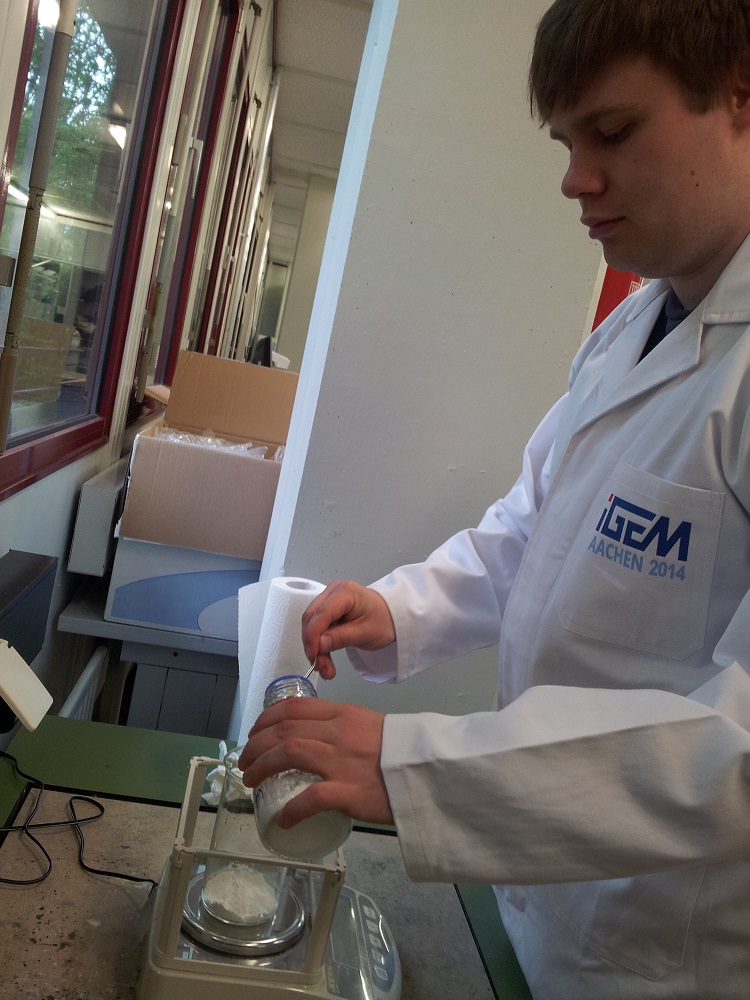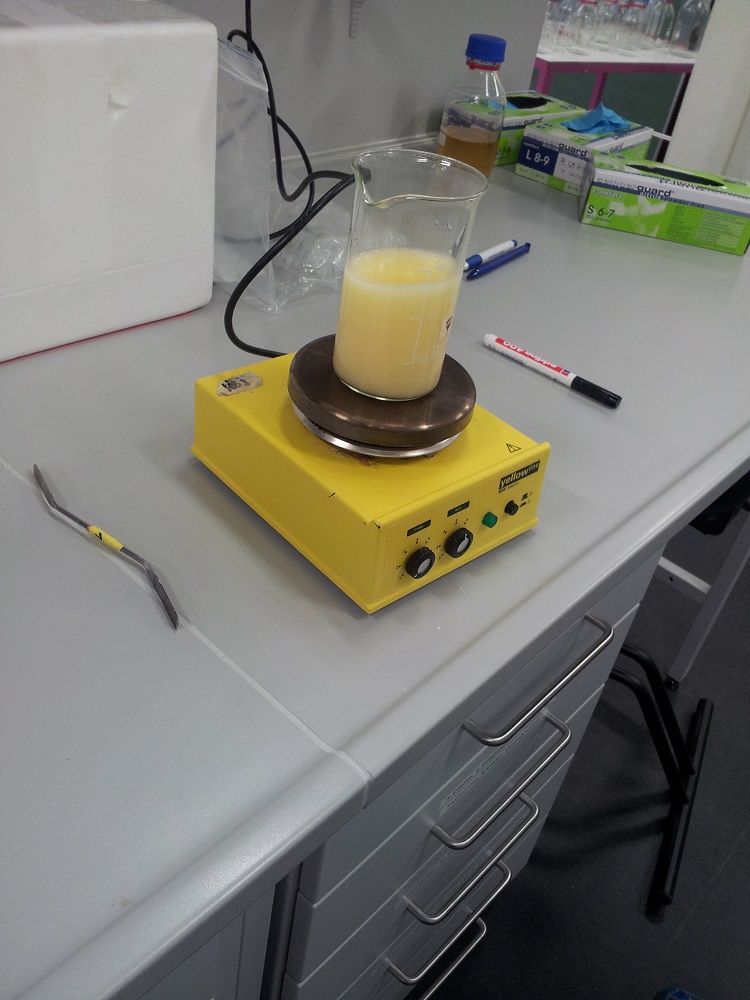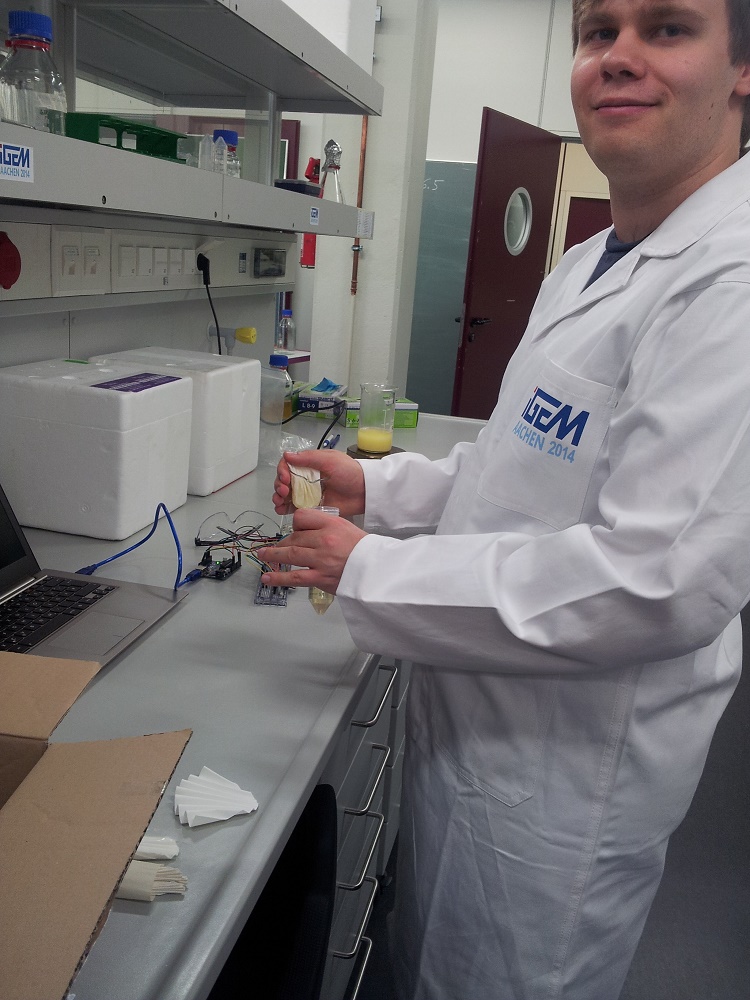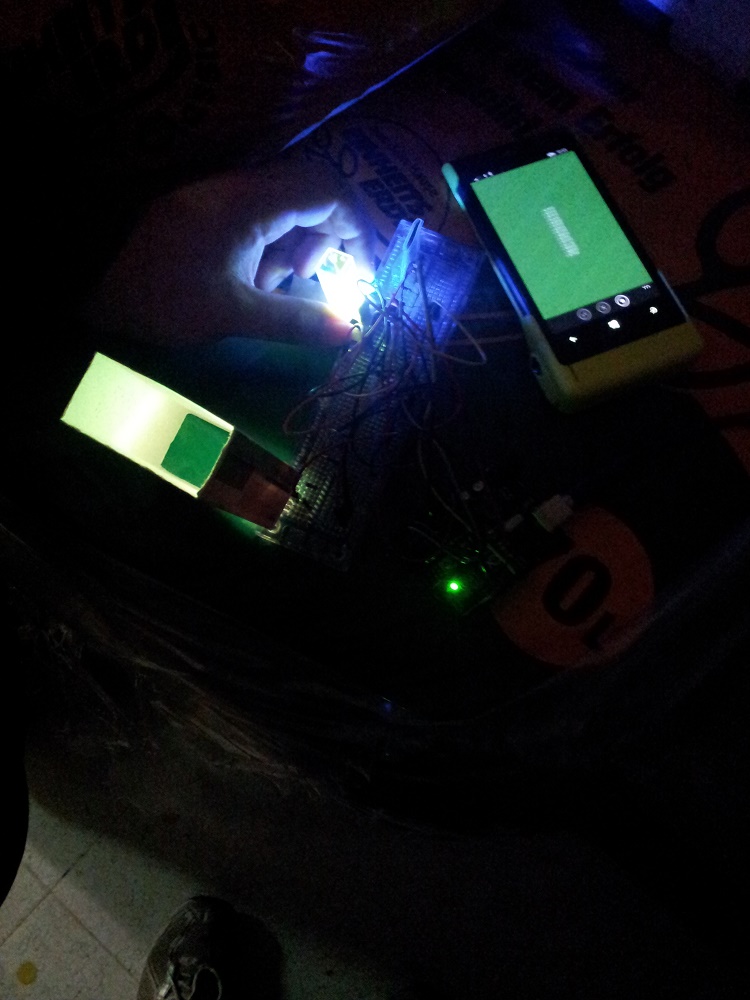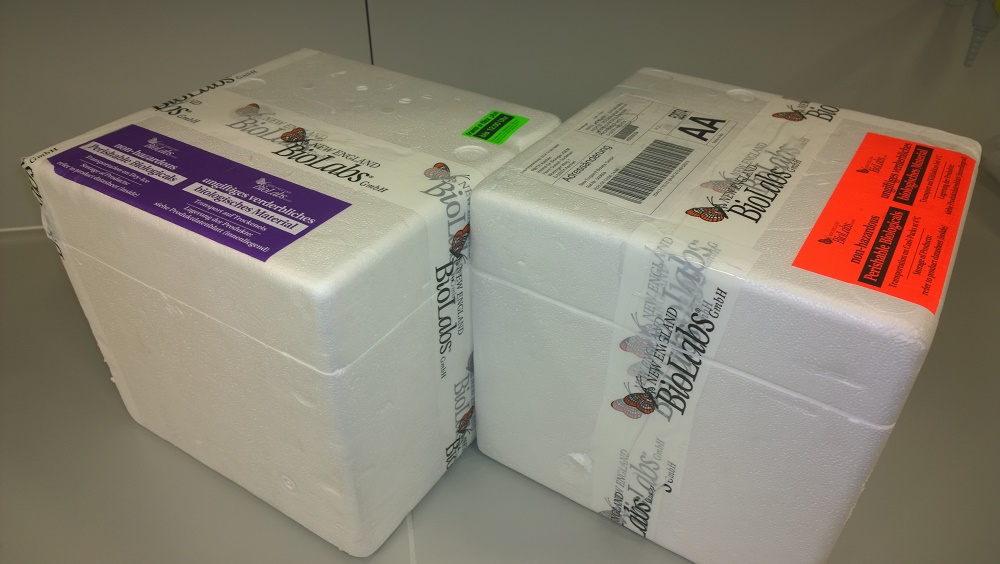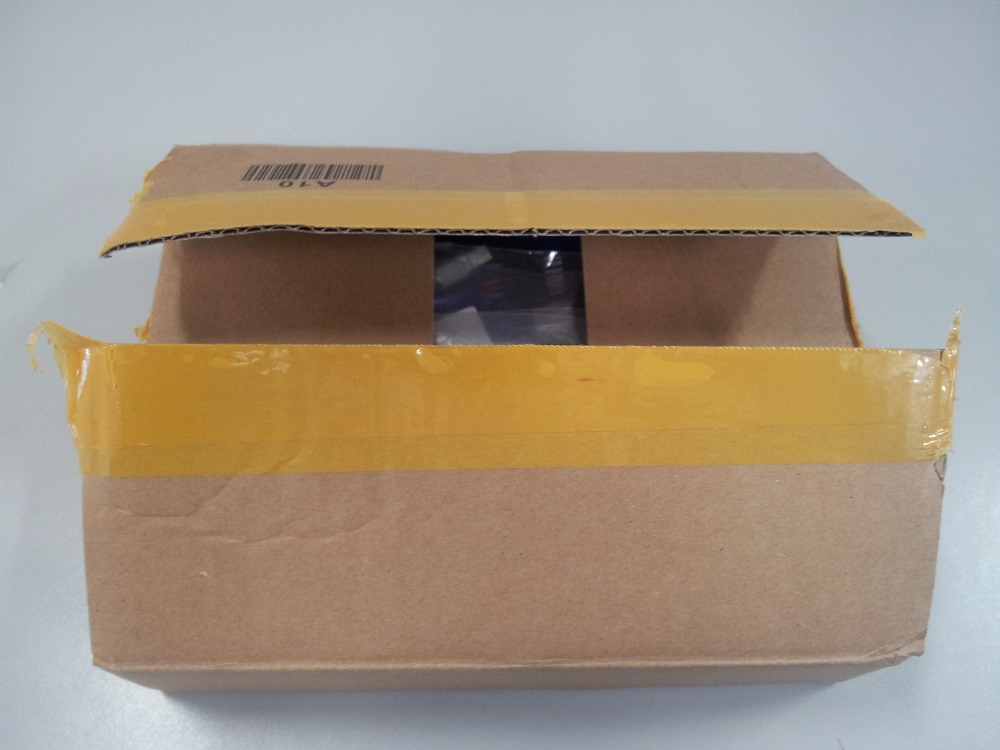Team:Aachen/Blog
From 2014.igem.org
| Line 9: | Line 9: | ||
</html> | </html> | ||
| + | = Blog #11 - No time for high politics = | ||
| + | By [[User:NBailly|NBailly]] 15:42, May 30 2014 (CDT) | ||
| + | |||
| + | International collaborations against antibiotic resistances are all well and good, but the UN Climate Change conference of all collaborations shows why coordination at the government level is the wrong approach, says Lars Fischer, editorial journalist at "Spektrum Der Wissenschaft". | ||
| + | |||
| + | [[File:AB1.jpg|800px]] | ||
| + | |||
| + | |||
| + | Not even a century ago, the discovery of antibiotics caused a decisive turn for the better in the millennia-long battle against infectious diseases. But while many already saw pathogenic agents eradicated and a golden age of medicine seemed in reach, we have now reached an abyss: a dramatic relapse into a world looms, where microorganisms are again rulers over life and death. | ||
| + | |||
| + | The threat emanating from the increasing antibiotic resistances is existential; for every one of us, as well as the countries and society itself. That the world community unites in a supranational board in order to face the latter, suggests itself. However, as alluring as the vision of an intergovernmental panel on antimicrobial resistance, as evoked by Mark Woolhouse and Jeremy Farrar (authors of the Nature article "Policy: An intergovernmental panel on antimicrobial resistance", published May 2014), may be, this thought is gravely mistaken. | ||
| + | |||
| + | Indeed, it is right that there are parallels between climate change and antibiotic resistances, however, there are also extensive–essential–differences. Firstly, the time span: Glaciers melt over centuries, climate zones shift over centuries, the ocean level rises over millennia. That frame is very suited for the international wrestling with measures and agreements, one that often reminds outsiders of a geological process. The first bacterial resistances against a new antibiotic currently appear within a few years. | ||
| + | |||
| + | [[File:MRSA_bacteria.jpg.1434678.jpg|800px]] | ||
| + | |||
| + | And the case of climate change is still quite simple because there is an actual scientific consensus that can be recommended to politics. Regarding antibiotic resistances, it is way more complicated. Data is lacking everywhere. The only thing that a panel like that could agree on at this moment would be a substantial need for research. | ||
| + | |||
| + | This would be a fatal signal for practice: First a big multinational panel is founded that is supposed to recommend the ultimate measures against antibiotic resistances, and then the organisation can hardly say more than "The facts are yet to be established". There is a great danger, that most stakeholders would first wait until the panel sees through its decision. And subsequently, one would still have to consolidate these recommendations at the governmental level–recommendations whose data basis is necessarily thin and incomplete. It would be easy for the profiteers of the status quo to thwart such an endeavour–just like it is happening with climate change. | ||
| + | |||
| + | Therefore, the combatants of resistances should rather avoid big politics and use the already-established networks to coordinate themselves internationally. If in doubt, influence on politics and corporations should be looked for on a local level. There are–as Woolhouse and Farrar wrote themselves–a multitude of examples for regional organisations and initiatives. Of course, such sectioned measurement structures have their disadvantages, but they are by far implemented more quickly. And the time factor is crucial: A race with bacteria has to be approached differently from one with glaciers. | ||
| + | |||
| + | |||
| + | <i>This post is a translation of the German article "Keine Zeit für hohe Politik" published in "Spektrum der Wissenschaft" on May 30th, 2014.</i> | ||
| + | |||
| + | = Blog #10 - Microorganisms on the rise = | ||
| + | By [[User:NBailly|NBailly]] 16:05, May 26 2014 (CDT) | ||
| + | |||
| + | Last lesson students at Kaiser-Karl-Gymnasium took environmental samples using a variety of different contact agar plates. On the weekend, René examined the plates under the microscope and took photos. Today René and Nina present the students the results of the experiment.<!--more--> But first, we showed the students an excerpt from the TV show "Planetopia" that broaches the issue "Hygiene in every-day life". | ||
| + | |||
| + | [[File:10404745_641111075966352_965198584_o.jpg|800px]] | ||
| + | [[File:14-05-25_Fotos_Versuchsergebnisse_(12_14).jpg|800px]] | ||
| + | |||
| + | <em>Staphylo-</em> and <em>micrococci</em> as well as <em>Enterobacteria</em>, <em>Candida</em> yeasts and miscellaneous fungi are found on the majority of plates. But why is there no growth on the plates containing the antibiotic? Actually, what is an antibiotic, how does it work and why are there multi-resistant pathogens? Nina explained the answer to all these questions to the students using descriptive graphics, and concluded the topic "Microorganisms in our Environment" with a short summmary. | ||
| + | |||
| + | As a starter for our next topic that is relevant to our project, we distribute a worksheet about quorum sensing among the students. For the remainder of the lesson, the students read the text and begin to answer the attached questions. | ||
= Blog #9 - Going to Munich = | = Blog #9 - Going to Munich = | ||
| - | By [[User:AZimmermann|AZimmermann]] 15:02, | + | By [[User:AZimmermann|AZimmermann]] 15:02, May 23 2014 (CDT) |
Hello iGEM enthusiasts, | Hello iGEM enthusiasts, | ||
| Line 20: | Line 56: | ||
= Blog #8 - iGEM team members back 2 school = | = Blog #8 - iGEM team members back 2 school = | ||
| - | By [[User:NBailly|NBailly]] 16:00, | + | By [[User:NBailly|NBailly]] 16:00, May 22 2014 (CDT) |
Hello iGEM enthusiasts, | Hello iGEM enthusiasts, | ||
Since our last visit, the student of the biology-chemistry course at Kaiser-Karl-Gymnasium in Aachen have been busy studying the basics of protein biosynthesis and the "lock and key" model. Now the 9th graders are prepared to have a closer look at synthetic biology and our project. | Since our last visit, the student of the biology-chemistry course at Kaiser-Karl-Gymnasium in Aachen have been busy studying the basics of protein biosynthesis and the "lock and key" model. Now the 9th graders are prepared to have a closer look at synthetic biology and our project. | ||
| - | [[File:Aachen_Kaiser-Karls-Gymnasium.jpg| | + | [[File:Aachen_Kaiser-Karls-Gymnasium.jpg|800px]] |
Each year, many people die of nosocominal infections - infections that the patients acquired in a hospital. However, these infections would be preventable in large part through better hygiene programs. Diseases caused by multi-resistant pathogens are especially critical because therapy options are very limited in these cases. | Each year, many people die of nosocominal infections - infections that the patients acquired in a hospital. However, these infections would be preventable in large part through better hygiene programs. Diseases caused by multi-resistant pathogens are especially critical because therapy options are very limited in these cases. | ||
| Line 35: | Line 71: | ||
= Blog #7 - The Biobricks have arrived = | = Blog #7 - The Biobricks have arrived = | ||
| - | By [[User:AZimmermann|AZimmermann]] 16:02, | + | By [[User:AZimmermann|AZimmermann]] 16:02, May 12 2014 (CDT) |
Hello iGEM enthusiasts, | Hello iGEM enthusiasts, | ||
| Line 54: | Line 90: | ||
= Blog #6 - Preparing Cool Experiments = | = Blog #6 - Preparing Cool Experiments = | ||
| - | By [[User:AZimmermann|AZimmermann]] 12:12, | + | By [[User:AZimmermann|AZimmermann]] 12:12, May 7 2014 (CDT) |
Hello iGEM enthusiasts, | Hello iGEM enthusiasts, | ||
| Line 90: | Line 126: | ||
= Blog #5 - Assembly in progress = | = Blog #5 - Assembly in progress = | ||
| - | By [[User:AZimmermann|AZimmermann]] 12:56, | + | By [[User:AZimmermann|AZimmermann]] 12:56, May 5 2014 (CDT) |
Hello iGEM enthusiasts, | Hello iGEM enthusiasts, | ||
| Line 121: | Line 157: | ||
= Blog #4 - We are approved! = | = Blog #4 - We are approved! = | ||
| - | By [[User:AZimmermann|AZimmermann]] 11:00, | + | By [[User:AZimmermann|AZimmermann]] 11:00, May 4 2014 (CDT) |
Hello iGEM enthusiasts, | Hello iGEM enthusiasts, | ||
| Line 142: | Line 178: | ||
= Blog #3 - School Project Kick-Off = | = Blog #3 - School Project Kick-Off = | ||
| - | By [[User:NBailly|NBailly]] 20:48, | + | By [[User:NBailly|NBailly]] 20:48, April 28 2014 (CDT) |
Today was the kick-off for the cooperation between our iGEM team and the Kaiser-Karl-Gymnasium, a secondary school in Aachen. | Today was the kick-off for the cooperation between our iGEM team and the Kaiser-Karl-Gymnasium, a secondary school in Aachen. | ||
| Line 151: | Line 187: | ||
= Blog #2 - The box is opened = | = Blog #2 - The box is opened = | ||
| - | By [[User:AZimmermann|AZimmermann]] 9:46, | + | By [[User:AZimmermann|AZimmermann]] 9:46, April 28 2014 (CDT) |
Hello iGEM enthusiasts, | Hello iGEM enthusiasts, | ||
| Line 182: | Line 218: | ||
= Blog #1 - The opening = | = Blog #1 - The opening = | ||
| - | By [[User:AZimmermann|AZimmermann]] 10:31, | + | By [[User:AZimmermann|AZimmermann]] 10:31, April 24 2014 (CDT) |
[[File:Aachen_Opening_Arduino_Box.jpg|250px]] | [[File:Aachen_Opening_Arduino_Box.jpg|250px]] | ||
Revision as of 09:01, 3 July 2014
YOU SHOULD NOT SEE THIS TEXT, SLIM HEADER IS DISCONTINUED
Please change this sites template to {{Team:Aachen/Header}}
Blog #11 - No time for high politics
By NBailly 15:42, May 30 2014 (CDT)
International collaborations against antibiotic resistances are all well and good, but the UN Climate Change conference of all collaborations shows why coordination at the government level is the wrong approach, says Lars Fischer, editorial journalist at "Spektrum Der Wissenschaft".
Not even a century ago, the discovery of antibiotics caused a decisive turn for the better in the millennia-long battle against infectious diseases. But while many already saw pathogenic agents eradicated and a golden age of medicine seemed in reach, we have now reached an abyss: a dramatic relapse into a world looms, where microorganisms are again rulers over life and death.
The threat emanating from the increasing antibiotic resistances is existential; for every one of us, as well as the countries and society itself. That the world community unites in a supranational board in order to face the latter, suggests itself. However, as alluring as the vision of an intergovernmental panel on antimicrobial resistance, as evoked by Mark Woolhouse and Jeremy Farrar (authors of the Nature article "Policy: An intergovernmental panel on antimicrobial resistance", published May 2014), may be, this thought is gravely mistaken.
Indeed, it is right that there are parallels between climate change and antibiotic resistances, however, there are also extensive–essential–differences. Firstly, the time span: Glaciers melt over centuries, climate zones shift over centuries, the ocean level rises over millennia. That frame is very suited for the international wrestling with measures and agreements, one that often reminds outsiders of a geological process. The first bacterial resistances against a new antibiotic currently appear within a few years.
And the case of climate change is still quite simple because there is an actual scientific consensus that can be recommended to politics. Regarding antibiotic resistances, it is way more complicated. Data is lacking everywhere. The only thing that a panel like that could agree on at this moment would be a substantial need for research.
This would be a fatal signal for practice: First a big multinational panel is founded that is supposed to recommend the ultimate measures against antibiotic resistances, and then the organisation can hardly say more than "The facts are yet to be established". There is a great danger, that most stakeholders would first wait until the panel sees through its decision. And subsequently, one would still have to consolidate these recommendations at the governmental level–recommendations whose data basis is necessarily thin and incomplete. It would be easy for the profiteers of the status quo to thwart such an endeavour–just like it is happening with climate change.
Therefore, the combatants of resistances should rather avoid big politics and use the already-established networks to coordinate themselves internationally. If in doubt, influence on politics and corporations should be looked for on a local level. There are–as Woolhouse and Farrar wrote themselves–a multitude of examples for regional organisations and initiatives. Of course, such sectioned measurement structures have their disadvantages, but they are by far implemented more quickly. And the time factor is crucial: A race with bacteria has to be approached differently from one with glaciers.
This post is a translation of the German article "Keine Zeit für hohe Politik" published in "Spektrum der Wissenschaft" on May 30th, 2014.
Blog #10 - Microorganisms on the rise
By NBailly 16:05, May 26 2014 (CDT)
Last lesson students at Kaiser-Karl-Gymnasium took environmental samples using a variety of different contact agar plates. On the weekend, René examined the plates under the microscope and took photos. Today René and Nina present the students the results of the experiment. But first, we showed the students an excerpt from the TV show "Planetopia" that broaches the issue "Hygiene in every-day life".
Staphylo- and micrococci as well as Enterobacteria, Candida yeasts and miscellaneous fungi are found on the majority of plates. But why is there no growth on the plates containing the antibiotic? Actually, what is an antibiotic, how does it work and why are there multi-resistant pathogens? Nina explained the answer to all these questions to the students using descriptive graphics, and concluded the topic "Microorganisms in our Environment" with a short summmary.
As a starter for our next topic that is relevant to our project, we distribute a worksheet about quorum sensing among the students. For the remainder of the lesson, the students read the text and begin to answer the attached questions.
Blog #9 - Going to Munich
By AZimmermann 15:02, May 23 2014 (CDT)
Hello iGEM enthusiasts,
on the coming weekend 3 of our team (Markus, Michael and Arne) are going to travel to Munich for the iGEM meetup iGEM meets CAS. We are very excited for this and can’t wait to meet all the other teams who will be attending. Stay tuned to this blog to see the first pictures when we come back!
So stay tuned!
Blog #8 - iGEM team members back 2 school
By NBailly 16:00, May 22 2014 (CDT)
Hello iGEM enthusiasts, Since our last visit, the student of the biology-chemistry course at Kaiser-Karl-Gymnasium in Aachen have been busy studying the basics of protein biosynthesis and the "lock and key" model. Now the 9th graders are prepared to have a closer look at synthetic biology and our project.
Each year, many people die of nosocominal infections - infections that the patients acquired in a hospital. However, these infections would be preventable in large part through better hygiene programs. Diseases caused by multi-resistant pathogens are especially critical because therapy options are very limited in these cases.
But actually, what are pathogens exactly and where do they come from? In order to answer these questions, we start the teaching module with the topic "Microorganisms in our Environment". In this part, we explain which germs we encounter every day, and how be can best protect ourselves from them.
In order to demonstrate how many and which microorganisms are our steady companions, we conduct an experiment with the students. A pair of students received 3 agar plates: one with regular LB agar, one plate with agar supplemented by an antibiotic, and one selective agar plate for yeasts and fungi. Equipped with the plates, the students wander through their school and take contact samples from places they think many microorganisms grow there. We will incubate the plates over the weekend so that we can show the students in the next lesson what has grown on their samples.
Blog #7 - The Biobricks have arrived
By AZimmermann 16:02, May 12 2014 (CDT)
Hello iGEM enthusiasts,
we have finally gotten the iGEM 2014 biobricks!
Now we can really start working on the molecular side of our project.
The reveal of our project, coupled with the launch of our new website will be done by the end of next week.
So stay tuned!
Blog #6 - Preparing Cool Experiments
By AZimmermann 12:12, May 7 2014 (CDT)
Hello iGEM enthusiasts,
We are currently working together with the Kaiser-Karl-Gymnasium in Aachen. Together we are teaching the students about synthetic biology, iGEM and our project in particular. As a part of this, we are designing cool experiments for the students to do themselves. Here a some nice pictures of us preparing them:
Blog #5 - Assembly in progress
By AZimmermann 12:56, May 5 2014 (CDT)
Hello iGEM enthusiasts,
if you are like us and can't wait for our wiki page to go fully online (see last post for more information) and the project to be fully revealed, here are some pictures to tide you over until then:
Can you guess what we are assembling?
Blog #4 - We are approved!
By AZimmermann 11:00, May 4 2014 (CDT)
Hello iGEM enthusiasts,
we are more than happy to finally be able to announce that our application has been finally approved by the iGEM headquarters. Now nothing will stand between us and our journey towards the giant Jamboree at the end of October!
This will bring a few changes towards especially this site. With the approval we now have access to our own wiki website hosted on the iGEM servers. We will migrate all our previous content towards this site in the next weeks. This will include everyhting already posted on here. As soon as we have finished preparing the full migration you will automatically be redirected, so you do not need to remember a different website for all your IGEM Aachen information.
As soon as the migrations has been completed you will also find all the details you need to know about our project we have been teasing about the past weeks on facebook and twitter. So stay tuned!
The project has been progressing nicely in part due to the awesome iGEM Kits provided by NEB:
NEB you are awesome!
Also as always you can follow us on Facebook] or Twitter]for more information and a look behind the scenes.
Blog #3 - School Project Kick-Off
By NBailly 20:48, April 28 2014 (CDT)
Today was the kick-off for the cooperation between our iGEM team and the Kaiser-Karl-Gymnasium, a secondary school in Aachen. In the upcoming weeks, exciting school lessons with members of our iGEM team await the students of the 9th grade biology-chemistry class. Different aspects of our project will be highlighted and explained to the students. Demonstrative experiments will explain the practical relevance.
In today's lesson, our members Nina and René offered the students a short impression of what to expect in the course of this teaching module. We also explained synthetic biology and the goal of our project.
Blog #2 - The box is opened
By AZimmermann 9:46, April 28 2014 (CDT)
Hello iGEM enthusiasts,
interested to see what is inside the box from the previous post?
Guess what we are building?
Blog #1 - The opening
By AZimmermann 10:31, April 24 2014 (CDT)
Hello everyone, the iGEM competition has officially started and we are taking part! If you are as excited as we are stay tuned as we will unveil everything about our project in the upcoming weeks. This blog will function as a behind the scenes look of the project and the team. So stay tuned for everything iGEM Aachen!
In the meantime you can check us out on Facebook or Twitter for more updates.
This year Aachen is rocking iGEM!
YOU SHOULD NOT SEE THIS TEXT, SLIM FOOTER IS DISCONTINUED
Please change this sites template to {{Team:Aachen/Footer}}
 "
"
